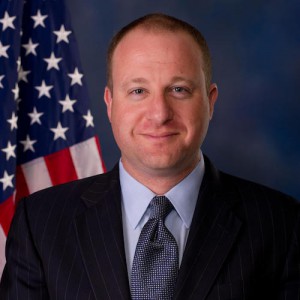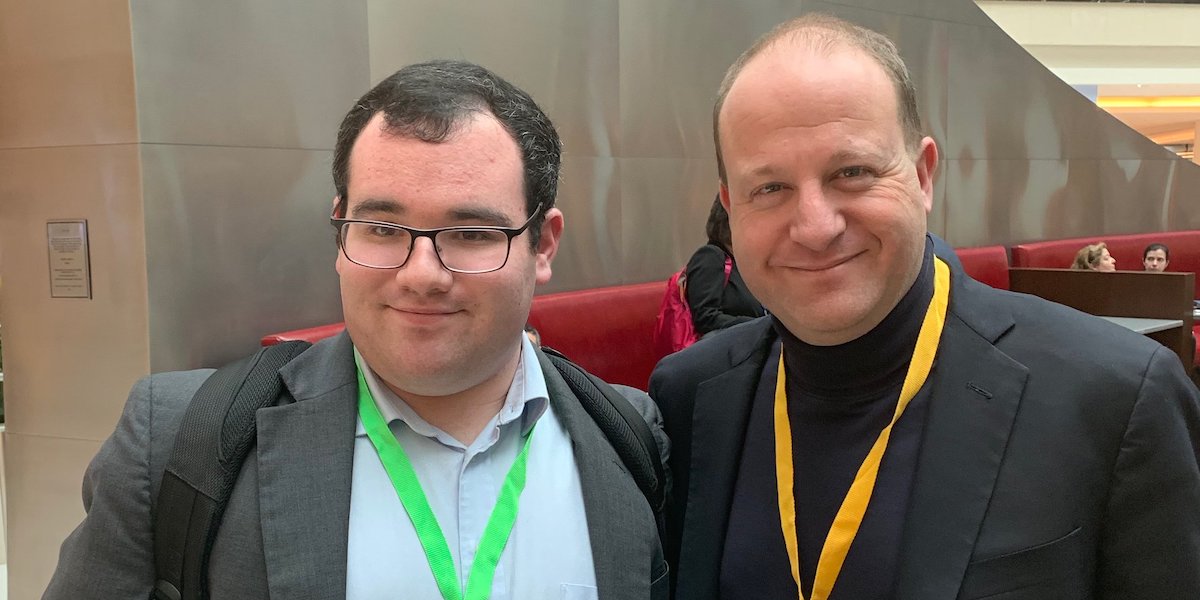
Washington D.C., March 9 – Colorado now ranks 11th in the nation for employment rates of people with disabilities with 141,691 of the 311,449 working-age (18-64) Coloradoans with disabilities being employed. The newly published 2018 Annual Disability Statistics Compendium shows Colorado has an employment of 45.5 percent for people with disabilities. Further analysis by the nonpartisan advocacy group RespectAbility shows that during the previous year, Colorado’s employment rate for people with disabilities was 42.7 percent. From 2017-2018 Colorado’s employment rates increased for people with disabilities as 10,033 Coloradoans with disabilities found new employment opportunities. Colorado’s previous Governor, John Hickenlooper, had prioritized jobs for people with disabilities.
Newly elected Gov. Jared Polis showed his commitment to the employment of people with disabilities during his campaign, responding to a questionnaire by RespectAbility, outlining his views on training and hiring people with disabilities. Then-candidate Polis repeatedly cited his work in starting two nonprofits, TechStars and Operation Bootcamp, that helped those in underrepresented communities and returning veterans start their own businesses. Project Bootcamp, he noted, “specifically works with veterans and their families, many of whom live with a disability.”
In Congress, he said, he cosponsored legislation that, in his words “would help to bust stigma surrounding disabilities, while also working to expand access to career and life opportunities for people with disabilities.”
“I believe,” Polis added, “that if we work together to eliminate barriers to employment, independence and equality for people with disabilities, we will also be working to eliminate the destructive stigmas against peoples (sic) with disabilities, all while ensuring that every Coloradan, no matter who they are, can reach their full potential at work and at life.”
Referring to his experience as a member of the State Board of Education and in launching two public schools for students who need unique support to succeed, Polis said, “what I learned from all of this is that many students have limitations placed on them that they cannot control. I also learned that if our educational system can meet these students where they are, we can help them discover futures and careers of success.”
Currently, his official website states they have, “a renewed commitment to effective mental health treatment, and strategies that ensure Coloradans with disabilities can live, work and thrive in their communities of choice.”
“Our nation was founded on the principle that anyone who works hard should be able to get ahead in life,” said Hon. Steve Bartlett, current Chairman of Respectability, who co-authored the Americans with Disabilities Act when he was in Congress. “People with disabilities deserve the opportunity to earn an income and achieve independence, just like anyone else.”
A National Issue
Beyond Colorado, how is the workforce changing for people with disabilities? What is driving these changes? The answer is simple. According to Vincenzo Piscopo of the Coca-Cola Company: “People with disabilities bring a unique skill set that it is very valuable for companies.” He went on to add, “As it relates to employment and competitiveness in the workplace, we have to stop thinking of disability as a liability and start thinking of it as an asset.”
Brand-name companies such as JP Morgan Chase, Coca-Cola, Ernst & Young, IBM, Walgreen’s, Starbucks, CVS and Microsoft show people with disabilities are successful employees. These companies also know that these workers improve the bottom line. “People with disabilities bring unique characteristics and talents to the workplace,” said RespectAbility President Jennifer Laszlo Mizrahi. “Hiring people with disabilities is a win-win-win for employers, people with disabilities and consumers alike.”
As more companies hire employees with disabilities, conversations are shifting to focus on inclusion. “Disability inclusion is no longer about automatic doors, curb cuts, ramps, and legislation,” says Jim Sinocchi, Head of the Office of Disability Inclusion at JP Morgan Chase. “Today, the new era of disability inclusion is about “assimilation” – hiring professionals with disabilities into the robust culture of the firm.”
According to the Census Bureau, there are more than 56 million Americans living with a disability. Disabilities include visible conditions such as spinal cord injuries, visual impairments or hearing loss and invisible disabilities such as learning disabilities, mental health or Autism.
An Election Issue
Voter research conducted by RespectAbility shows how disability issues connect to all aspects of American life. “Fully three-quarters of likely voters either have a disability themselves or have a family member or a close friend with disabilities,” said former Representative and Dallas Mayor Steve Bartlett. “People with disabilities are politically active swing voters, and candidates should take note of the important issues they care about.”
As 2019 moves into 2020 and the political campaign season heats up, continuing job growth for people with disabilities will be a crucial indicator of the health of the American economy.

Be First to Comment